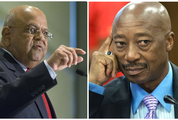Co-ordinated education spending is key to success
by Raymond Patel,
2016-02-25 06:10:13.0
THE meeting between business and government leaders before the state of the nation address this month signals a new hope that can only bode well for the country. Many take for granted the fact that the challenges facing the country cannot be overcome by the government alone.
The events of December last year, when an unexpected change of guard at the Treasury caused the rand to plummet, raised eyebrows about the relationship between the government and the private sector. Harsh words were exchanged across society and this left a bitter taste in the mouths of many investors. The incident also heightened the risk of a credit rating downgrade that the country doesn’t need.
It is in this context that the business and government dialogue is heartening. In a typical South African way, we saw all sides rising to the occasion, facing the world in Davos and then coming home to continue the collaboration. Investors, while reading all of these as good signs, are now waiting to see what comes of it.
It is natural for the relationship between capital and government to be laced with tension, but equally it is clear there is a lot of common ground and goals that should underpin the relationship. The education and training sector is a key area in this regard. This requires the public sector to produce the skills the business community needs. On the other side, the private sector has to hire the graduates churned out by institutions.
I was not privy to the discussions between the parties but can imagine that education and training topped the agenda. This is an obvious area where a future reservoir of skills can be built to shield us from rough times. We have 24 universities, 50 technical and vocational colleges and thousands of companies with significant turnover. A collaboration between these companies and the sector education and training authorities (Setas) can easily produce a sustainable financial plan for each of the universities and colleges. Through creative public-private partnerships surely all students can be funded, even before we resort to blanket free education based on limited state resources?
Surely the money that should be spent on skills development and corporate social investment (CSI) in the private sector can be properly directed to ensure that universities and technical colleges are sustainably funded? Considering the amount of money that the private sector has not released for investment there should be no reason why primary schools are not equipped with top-of-the range science laboratory equipment and libraries to ensure our future workforce, and for that matter our children, are exposed from the outset to the best.
A cursory analysis of what business spent on CSI for education reveals a staggering amount in the billions. According to the Kaelo and Trialogue reports on CSI spending on education, such spend has multiplied since 1994, underlining the fact that business consciousness of the need for expenditure on education has heightened tremendously. The difficulty is poor co-ordination and lack of common investment strategies between the private and public sectors — and within the private sector itself. This results in pet projects guided merely by the interests of some CEOs without considering project impact in the long run.
On a few occasions, communities not involved in the setting up of laboratories and libraries end up looting and burning these facilities because of the lack of ownership and consultation. Other undesirable scenarios are a tick-box investment where educational investments are not placed in the right places or not according to community or industry needs. The worst example I have come across is where a government department denies or reduces budgets to schools that have received private sector help, further impoverishing those schools when the private sector funding dries up. This lack of common purpose between business, the government and communities is what sits at the heart of the current lack of resources for education and not the absence of resources.
At the Manufacturing, Engineering and Related Seta (Merseta) this year alone, we have made millions available for higher education initiatives as part of our contribution to education resourcing. We challenge all stakeholders to do something concrete to ensure we don’t leave funding to the government alone. We believe a better partnership can be struck between the government and the public sector to rescue education. Mentorship and apprenticeship must now be made mandatory for business because, despite it being an obvious bridge to deal with the skills deficit, it does not occur naturally for companies to make it an essential part of their DNA.
And so in these meetings, where commitments are made, this solution has to feature very strongly to create an environment in which more and not fewer young people can be absorbed into the job market to gain experience at all levels. Until this is declared a crisis, I doubt anything will happen to change the current skills impasse where experience is needed by those who have not had the opportunity to be gainfully employed.
During a crisis such as ours there may be a temptation to reinvent the wheel, but the solutions for economic development have been with us for a long time. What is lacking is often the political will for business and the government to team up rather than see each other on opposite poles of the economy. It is clear, therefore, that we did not need the student revolt to come to an agreement that investment and access to higher education will in the long run save the economy.
The state of the nation address has laid a good basis for collaboration and the rebuilding of trust between the government and business. In many ways it has provided detail on how the government intends to create a conducive environment to ensure less wastage and increased opportunities for growth. Business must now play its part in revisiting its attitude towards investment without being forced by legislation. Opening its doors for young people to learn on the job must be a good start.
• Dr Patel is the CEO of Merseta

Picture: THINKSTOCK
THE meeting between business and government leaders before the state of the nation address this month signals a new hope that can only bode well for the country. Many take for granted the fact that the challenges facing the country cannot be overcome by the government alone.
The events of December last year, when an unexpected change of guard at the Treasury caused the rand to plummet, raised eyebrows about the relationship between the government and the private sector. Harsh words were exchanged across society and this left a bitter taste in the mouths of many investors. The incident also heightened the risk of a credit rating downgrade that the country doesn’t need.
It is in this context that the business and government dialogue is heartening. In a typical South African way, we saw all sides rising to the occasion, facing the world in Davos and then coming home to continue the collaboration. Investors, while reading all of these as good signs, are now waiting to see what comes of it.
It is natural for the relationship between capital and government to be laced with tension, but equally it is clear there is a lot of common ground and goals that should underpin the relationship. The education and training sector is a key area in this regard. This requires the public sector to produce the skills the business community needs. On the other side, the private sector has to hire the graduates churned out by institutions.
I was not privy to the discussions between the parties but can imagine that education and training topped the agenda. This is an obvious area where a future reservoir of skills can be built to shield us from rough times. We have 24 universities, 50 technical and vocational colleges and thousands of companies with significant turnover. A collaboration between these companies and the sector education and training authorities (Setas) can easily produce a sustainable financial plan for each of the universities and colleges. Through creative public-private partnerships surely all students can be funded, even before we resort to blanket free education based on limited state resources?
Surely the money that should be spent on skills development and corporate social investment (CSI) in the private sector can be properly directed to ensure that universities and technical colleges are sustainably funded? Considering the amount of money that the private sector has not released for investment there should be no reason why primary schools are not equipped with top-of-the range science laboratory equipment and libraries to ensure our future workforce, and for that matter our children, are exposed from the outset to the best.
A cursory analysis of what business spent on CSI for education reveals a staggering amount in the billions. According to the Kaelo and Trialogue reports on CSI spending on education, such spend has multiplied since 1994, underlining the fact that business consciousness of the need for expenditure on education has heightened tremendously. The difficulty is poor co-ordination and lack of common investment strategies between the private and public sectors — and within the private sector itself. This results in pet projects guided merely by the interests of some CEOs without considering project impact in the long run.
On a few occasions, communities not involved in the setting up of laboratories and libraries end up looting and burning these facilities because of the lack of ownership and consultation. Other undesirable scenarios are a tick-box investment where educational investments are not placed in the right places or not according to community or industry needs. The worst example I have come across is where a government department denies or reduces budgets to schools that have received private sector help, further impoverishing those schools when the private sector funding dries up. This lack of common purpose between business, the government and communities is what sits at the heart of the current lack of resources for education and not the absence of resources.
At the Manufacturing, Engineering and Related Seta (Merseta) this year alone, we have made millions available for higher education initiatives as part of our contribution to education resourcing. We challenge all stakeholders to do something concrete to ensure we don’t leave funding to the government alone. We believe a better partnership can be struck between the government and the public sector to rescue education. Mentorship and apprenticeship must now be made mandatory for business because, despite it being an obvious bridge to deal with the skills deficit, it does not occur naturally for companies to make it an essential part of their DNA.
And so in these meetings, where commitments are made, this solution has to feature very strongly to create an environment in which more and not fewer young people can be absorbed into the job market to gain experience at all levels. Until this is declared a crisis, I doubt anything will happen to change the current skills impasse where experience is needed by those who have not had the opportunity to be gainfully employed.
During a crisis such as ours there may be a temptation to reinvent the wheel, but the solutions for economic development have been with us for a long time. What is lacking is often the political will for business and the government to team up rather than see each other on opposite poles of the economy. It is clear, therefore, that we did not need the student revolt to come to an agreement that investment and access to higher education will in the long run save the economy.
The state of the nation address has laid a good basis for collaboration and the rebuilding of trust between the government and business. In many ways it has provided detail on how the government intends to create a conducive environment to ensure less wastage and increased opportunities for growth. Business must now play its part in revisiting its attitude towards investment without being forced by legislation. Opening its doors for young people to learn on the job must be a good start.
• Dr Patel is the CEO of Merseta



























Change: 1.61%
Change: 1.50%
Change: 1.82%
Change: 0.74%
Change: 4.50%
Data supplied by Profile Data
Change: -0.27%
Change: 0.26%
Change: 1.61%
Change: 0.00%
Change: 0.35%
Data supplied by Profile Data
Change: 0.70%
Change: -0.01%
Change: -0.04%
Change: -0.07%
Change: -0.11%
Data supplied by Profile Data
Change: 1.58%
Change: 1.07%
Change: 1.14%
Change: 3.88%
Change: -0.03%
Data supplied by Profile Data